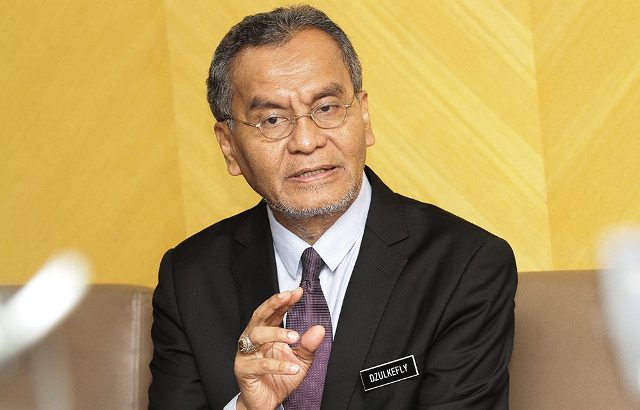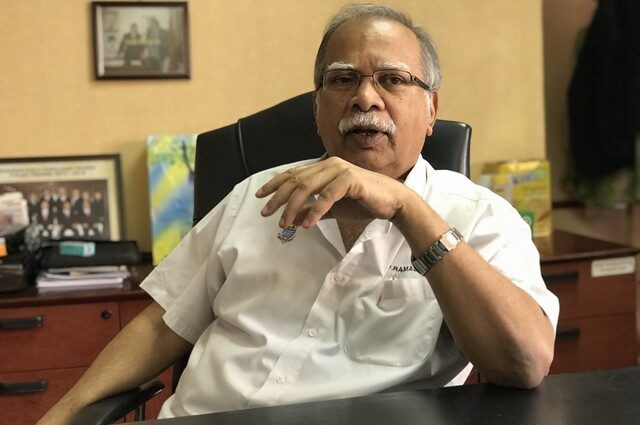

Since helming the ministry in May 2018, Dr Dzulkefly noted that despite already achieving upper middle income status, the nation has, in fact, been underspending when it comes to healthcare services.
As such, it was no surprise that national audit reports showed that government hospitals’ emergency and trauma departments were underfunded, understaffed and overworked to the point of overcrowding and longer waiting periods for treatment.
Dr Dzulkefly said he addressed this situation by getting the prime minister and the finance minister to commit to ensuring allocations provided were more than reasonable for national healthcare development, which he pointed out failed to keep up with current needs.
As a result, the ministry was allocated RM30.7 billion in Budget 2020 compared to RM28.68 billion the year before, he said when appearing as a guest on Bicara Naratif: Pencapaian Kementerian Kesihatan Malaysia 2019, broadcast by TV1 last night.
“I don’t look only at the government sector, we are the Health Ministry, we are not just the custodian of health or public healthcare supervisors, we are also the custodian of health for everyone. In other words, both the public and private sector,” Dr Dzulkefly said.
Citing general practitioners’ clinics involvement in the healthcare scheme for the low-income group, PeKA B40, the minister sees the private sector as playing a big role in helping improve the country’s healthcare delivery services.
“I look at the private (healthcare) sector as my partner, and not as a competitor. I would like to also see the private sector enhancing value-based delivery, not just curative, but preventive as well,” he said.
On the smoking ban in eateries that went through the educational enforcement period from January last year and took full effect on Jan 1 this year, Dr Dzulkefly said he preferred not to be seen as a ‘foe’ to smokers, and even admitted to being concerned and feeling uneasy to being perceived in that manner.
“I am the health minister who is trying to regulate matters (on public smoking)… smokers can go ahead and smoke, but please be mindful to do so in the right places,” he said.
Dr Dzulkefly reasoned that Malaysians were increasingly facing what he termed as ‘premature deaths’.
Among others, non-communicable diseases (NCD) such as diabetes, hypertension, high fat and cholesterol levels, coupled with modern lifestyle habits such as lack of exercise, smoking, alcohol consumption and obesity were major contributors to the problem, he said.
“I initiated this move (smoking ban) as smoking is one of the risk factors that lead to complications for those with diabetes and hypertension, which in turn can lead to premature death. I took this approach with the intention of extending Malaysians’ life span,” he said.
On long standing grouses of overcrowding in public hospitals, Dr Dzulkefly said the ministry is taking a serious approach to tackle the matter, while admitting that among others, the problem was compounded by healthcare facility projects that failed to meet their deadlines.
In this respect, Dr Dzulkefly pointed out that he had to roll up his sleeves and act on contractors who took a lackadaisical attitude in project delivery, and cited the contractor of the Petra Jaya hospital in Sarawak as an example who failed to meet its deadline which eventually led to its contract being terminated.
“That is a clear signal that I will not tolerate when it comes to matters involving facilities for the people,” he said.
At a time when the nation is faced with the challenge of having to deal with NCDs such as diabetes and hypertension, communicable diseases such as diphtheria, polio and recently influenza also seemed to have reared its ugly head.
In this context, the emergence of the anti-vaccination movement in the country must also be seen as a worry, he said, and the challenge now was to ensure the herd immunity vaccination rate of 95 per cent is achieved.
“These diseases are preventable with vaccination, they can be prevented, stopped and dealt with immunisation, so why must we reject this (vaccination),” Dr Dzulkefly, who also spoke about his prior experience as an educator in the field of pharmacology and toxicology.
While not totally blaming the (anti-vaccine) movement, he, nevertheless, urged them to act fairly for the sake of their children by ensuring they are vaccinated, and also not to spread information that could cause alarm among the public.
— BERNAMA










